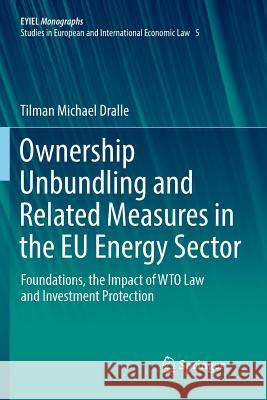Ownership Unbundling and Related Measures in the Eu Energy Sector: Foundations, the Impact of Wto Law and Investment Protection » książka
topmenu
Ownership Unbundling and Related Measures in the Eu Energy Sector: Foundations, the Impact of Wto Law and Investment Protection
ISBN-13: 9783030085438 / Angielski / Miękka / 2018 / 373 str.
Ownership Unbundling and Related Measures in the Eu Energy Sector: Foundations, the Impact of Wto Law and Investment Protection
ISBN-13: 9783030085438 / Angielski / Miękka / 2018 / 373 str.
cena 446,44 zł
(netto: 425,18 VAT: 5%)
Najniższa cena z 30 dni: 443,35 zł
(netto: 425,18 VAT: 5%)
Najniższa cena z 30 dni: 443,35 zł
Termin realizacji zamówienia:
ok. 20 dni roboczych.
ok. 20 dni roboczych.
Darmowa dostawa!
Kategorie:
Kategorie BISAC:
Wydawca:
Springer
Seria wydawnicza:
Język:
Angielski
ISBN-13:
9783030085438
Rok wydania:
2018
Wydanie:
Softcover Repri
Ilość stron:
373
Waga:
0.54 kg
Wymiary:
23.39 x 15.6 x 2.03
Oprawa:
Miękka
Wolumenów:
01
Dodatkowe informacje:
Wydanie ilustrowane











